The View of Communication in Digital Convergence
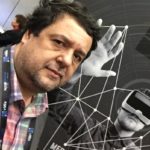
The View of Communication in digital convergence
During this session, Brazilian communication academics will have the opportunity to analyze the changes in the audiovisual production chain, focusing on content distribution and how audience behavior is changing in reaction to new demands in audiovisual consumption. The new audiovisual distribution platforms, new content distribution tools and the new viewer habits will come under the microscope. This is a unique opportunity to exchange experiences with those that provide the critical support and the tools for producing and distributing content.
Chair: Prof. Doutor Fernando Carlos Moura - Editor-in-chief of SET Magazine.
Journalist, professor of Digital Design and Advertising & Propaganda at Pontifical Catholic University of Campinas (PUCC); Professor of the Postgraduate Course in Executive Production and Television Management at FAAP (Fundação Armando Alvarez Penteado) and researcher at the Center for Media Research and Journalism (CIMJ), Faculty of Social and Human Sciences, Universidade Nova de Lisboa (UNL) and since 2013 editor-in-chief of SET Magazine.
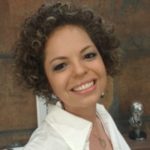
Obted - Brazilian Observatory of Digital Television and Technological Convergence
Obted (Brazilian Observatory of Digital Television and Technological Convergence) is a project of the Laboratory of Art, Media and Digital Technologies (LabArteMídia), Department of Cinema, Radio and Television, School of Communications and Arts of the University of São Paulo. It was conceived by professors Almir Almas (CRT-ECA / USP) and Deisy Feitosa (FFLCH-USP) to follow the scenario of digital TV implantation in Brazil and, at the same time, to look at and reflect on communication technologies, languages and television content set in the era of mass digital production. Recently, Obted has created the Museum of Memory and Oralities on TV, designed to gather video testimonies of viewers who bring historical reconstitutions and reflections about meeting their lives with the "life" that pulsates in a television environment, considering past, present and future times.
Speaker: Profa. Dra. Deisy Fernanda Feitosa - Jornalista
Journalist and associate professor of the Brazilian Observatory of Digital TV and Technological Convergence (Obted) of ECA / USP. Master in Digital TV, PhD in Communication Sciences and a postdoctoral fellow in Diversity.
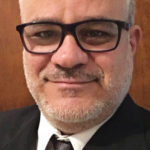
Are we really on the path to convergence? Are free-to-air TV and TV on demand really the same?
Technological discourse tells us that very soon we will not notice the differences between linear TV and TV on demand. Many argue that viewers do not really care about which platform the content will be distributed on. Will this indeed be the case? What television model does Brazilian society really want? Will Artificial Intelligence affect Linear TV programming? These issues will be analyzed, checkmating the technological discourse of mediatic convergence which has been the roadmap for major global players and television station managers around the world, and which is putting the economic viability of TV channels in Brazil at risk.
Speaker: Prof. Dr. Francisco Machado Filho - Journalist and professor of the Journalism and Radio-TV course at Unesp / Bauru - Director of TV UNESP
15 years’ experience in producing and directing TV programs. Holds a Doctorate in Digital TV from UMESP-SP. Specialist in Communication Advisory Management. University professor on social communication courses

How to think about content based on audience profiles
Every day, TV channels receive a huge volume of quantitative data about the performance of their products. However, this isolated information is not sufficient for answering questions like: Who was watching? Why were they watching? Why did they stop watching? Why does a certain content please more than others? Thinking about creating content in response to specific viewer demands, TV channels are paying more attention to the social, economic and cultural profiles of the public that consumes it. This variable points to a series of behaviors and preferences that can lead media content producers to make the right decisions regarding the choice of themes and approaches for their products
Speaker: Prof. Me. Carla Pollake da Silva - Professora da Faculdade Cásper Líbero e Sócio-fundadora da Escola de Comunicadores de SP (ECO).
Master’s in social communication from the Methodist University of São Paulo (2004). Professional experience in TV and the academic world. Currently (2018) professor the Cásper Líbero School. She has taught at several universities like: the Methodist University of São Paulo (UMESP), Cruzeiro do Sul University, and Santanna University, among others. Between 2016 and 2017 she was Content Research and Analysis Manager at TV A Crítica (a TV Record affiliate). She is currently a founding partner of the Communicators School of SP (ECO).
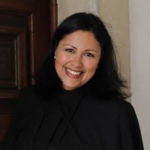
Transmedia mobilization and audience power
The growth of audience power within the context of convergent medias is a fundamental component that companies have to take note of, as its ability to impact the market continues to grow. Recently, mobilizations that seek to counter various prejudices have affected the production universe, some of them even asking for the cancellation of programs on streaming assistance platforms. That is why it is important to reflect on the possible ways forward for enabling production in accordance with the latent and actual demands of audiences.
Speaker: Profa. Dr. Fernanda Castilho - Professor of the Center of Technological Education Paula Souza (Fatec) and the Federal University of São Carlos (UFSCar)
Post-doctorate from the School of Communications and Arts at the University of São Paulo (ECA/USP). Professor at the Paula Souza State Center for Technical Education (Fatec) and on the Specialization Course in Audiovisual Content Production for Multiple Platforms at the Federal University of São Carlos (UFSCar). A doctorate and a master’s degree from the University of Coimbra (Portugal). Undergraduate degree in Social Communication & Journalism from the Pontifical Catholic University - PUC Campinas. Researcher at the Soap Opera Studies Center of the ECA-USP (CETVN) and the Iberoamerican Observatory for Television Fiction - OBITEL. She has experience in the field of Communication, with the emphasis on fiction and non-fiction narrative, primarily on the following themes: television fiction, soap operas, transmedia narratives, digital consumption, student digital practices, representation and minorities.
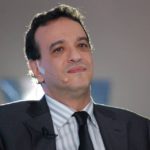
The Audiovisual Communication of Science in Ibero-America
Informing science to the general public is a challenge that all public, university or commercial TVs face routinely and with digital convergence, use of social media and multi-screen distribution the challenge is even greater.
How University and Educational TVs are innovating in the communication of science through Audiovisual.
Formats of programs, interactive resources, scientific journalism in network, some of the experiences developed in Ibero American TVs and the technologies used.
Speaker: Prof. Dr. Fernando Moreira - Director of TV Univap and President of ABTU - Brazilian Association of University Television
Pedagogue, Advertising and Communication Professional. Director of TV Univap and President of the ABTU – the Brazilian Association of University Television. Master and Doctor in Communication Processes from the Methodist University of São Paulo. Chair of the School of Applied Social Sciences and Communication at Vale do Paraíba University. He has experience in the field of Communication, with the emphasis on audiovisual technologies and communication processes. Member of professional associations in Brazil and overseas, such as the Brazilian Association of Television Engineering and Telecommunication - SET, the Broadcast Education Association - BEA, National Association of Television Program Executives - NATPE and Society of Broadcast Engineers- SBE.

